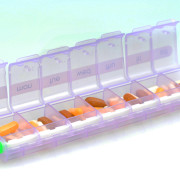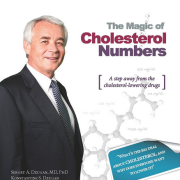3 Reasons Why Statins Do More Harm Than Good
If you’ve ever had high cholesterol, you’ve probably heard the term we’re going to talk about today. Statins are a class of drugs used to treat hypercholesterolemia—high cholesterol. Over $20 billion dollars worth of statins are sold each year in the US alone. Seems like an effective drug, right? Wrong.
Research shows that though deaths due to heart disease decrease by 15% among patients who take statins, there is an increase in deaths due to complications from other diseases.
Why is this the case? Our medical community has a habit of treating the symptoms instead of treating the root cause. When you treat the root cause, which is often hormone imbalance in the body due to aging and environmental factors, you are able to effectively restore your body chemistry & balance from the inside out.
The Risk of Diabetes
A team of six doctors from multiple universities in Scandinavia published the final results of their detailed study March 4th in the medical journal Diabetologia. Their conclusion: “Statin treatment increased the risk of type 2 diabetes by 46%, attributable to decreases in insulin sensitivity and insulin secretion.”
There has been evidence in the past of statins increasing adult-onset Type 2 diabetes, but it has always been estimated to be in the 10-20% range. Those studies, however, were designed to observe the effects of statins on cholesterol. The diabetes risk information was simply an interesting by-product involving only the obvious cases.
This study, on the other hand, was specifically designed to observe the long-term effects of statin use with regard to causing otherwise healthy people to develop type 2 diabetes. The worst results were found to be caused by two of the most common statins in use world-wide: atorvastatin (aka Lipitor) and simvastatin (aka Zocor).
Increased Risk of Arterial Blockage
We do a lot of research about these conditions because it’s important to understand how the medical community is investigating the effects of these drugs on a population that has, sadly, been taking this medication consistently for the past several years. One such international study published in the medical journal Atherosclerosis showed that statin use is associated with a 52 percent increase in the prevalence and extent of calcified coronary plaque compared to non-users. Coronary artery blockage is the hallmark of potentially lethal heart disease!
Side Effects of Statins
Some of the side effects of the most common versions of statins include:
- Kidney Failure
- Erectile Dysfunction
- Neuropathy
- Cataracts
- Pancreatic Dysfunction
- Liver Dysfunction
- Cognitive Impairment/Memory Loss
- Muscle weakness and wasting (your heart is a muscle, right?)
- Anemia
- Immune System Suppression
- Cancer
We think these risks are just too high for anyone to seriously consider this an effective method of treatment.
As Dr. Dzugan says “Taking potent cholesterol-lowering medications has never been shown in clinical research to actually improve mortality. In fact, in the biggest trials, significantly more people who took the drugs died than those who did not. They didn’t die of a heart attack, but dead is dead – whatever the cause.”
Get your FREE e-Book today, Dr. Dzugan’s “Your Blood Doesn’t Lie” and learn more about our program and how it can help you.
Because every person’s body chemistry is different, we work closely with you to develop a personalized program that improves your overall Quality of Life.
Scroll to the bottom of the Dzugan PhysioLogic home page and grab your free ebook, a free consultation with one of our Doctors, or just give us a call at 1-866-225-4877 Option 2 today to speak with an experienced advisor.
DISCLAIMER: This blog is for informational purposes only. It does not replace medical care from a licensed physician. If you have a medical concern, please contact DzLogic at 1-866-225-4877.





